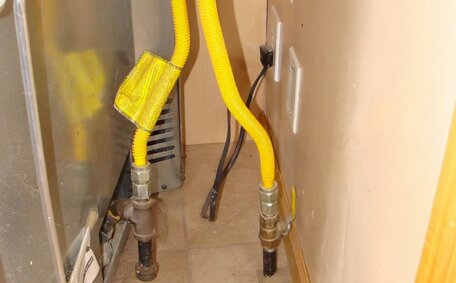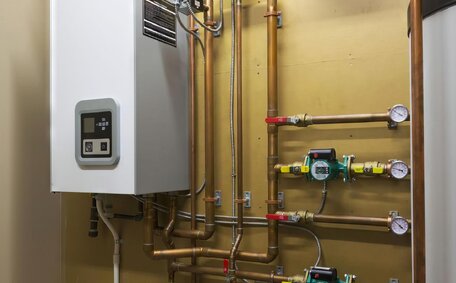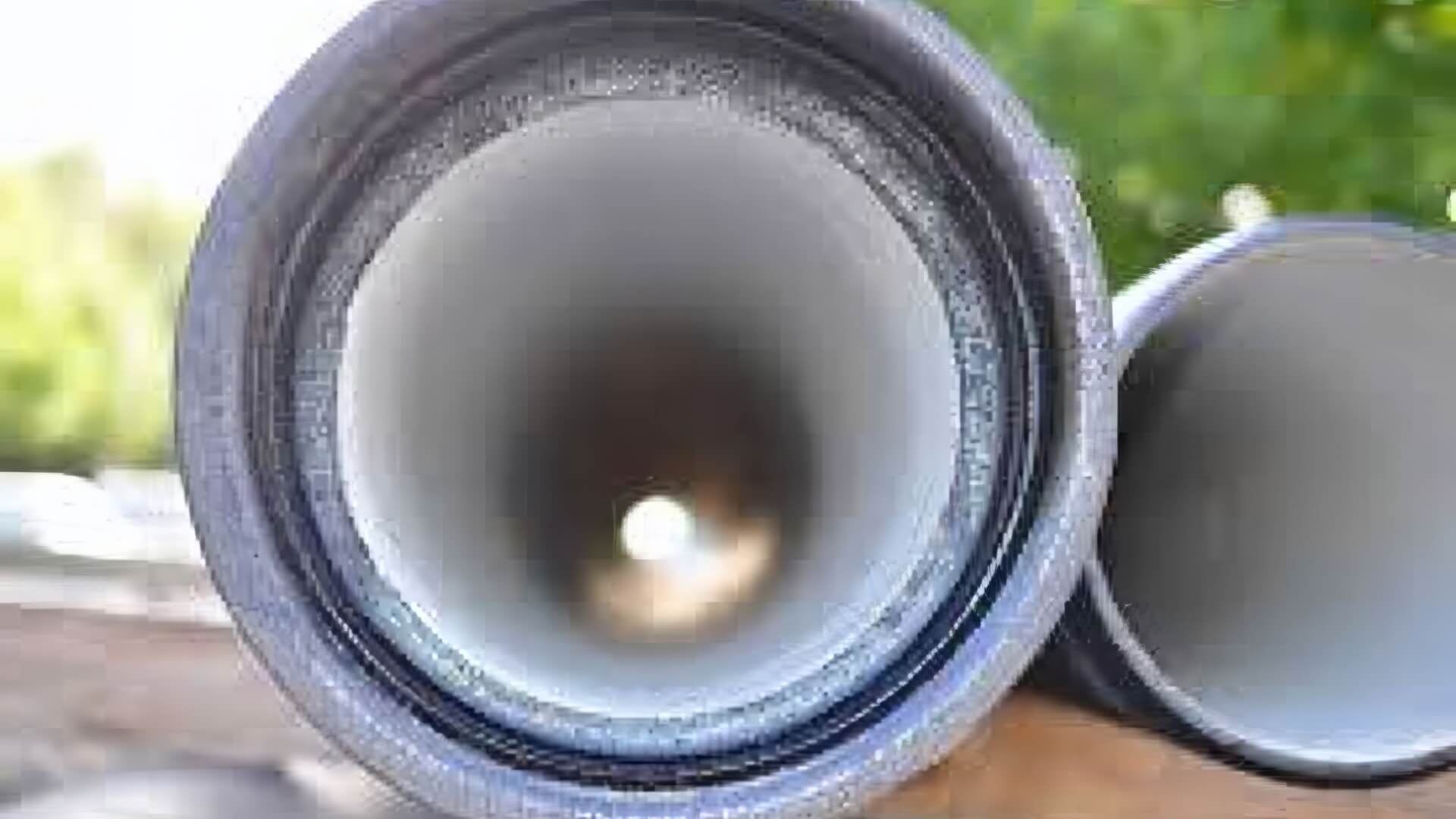
Keep Updated on Gas Appliance Recalls
Consumers should maintain awareness of current gas appliance recalls and safety alerts to prevent injuries. Check recall lists regularly to protect your home and family.
Read MoreSome of your plumbing and gas fitting endeavours, such as learning to connect gas pipe networks, may look enticing as a cost-effective solution for home repairs and renovations, spurring many to embark on plumbing projects they can tackle with more than just basic knowledge. However, it’s essential to make sure you understand DIY plumbing safety risks and legal stipulations before you start your DIY project in gas fitting work.
While basic tasks like changing a gas cooker hose might seem manageable for amateur DIYers aiming to achieve as much as possible independently, it’s critical to defer to licensed specialists when it comes to more demanding plumbing tasks involving gas pipes or appliances.
In New South Wales, legislation allows homeowners to do minor gas fitting work themselves. In New South Wales, legislation allows homeowners to do minor gas fitting work themselves.
However, restrictions apply concerning work on gas pipes and high-risk systems. However, restrictions apply concerning work on gas pipes and high-risk systems.
This article provides insight into which DIY solutions and plumbing tasks you can do yourself in Werrington and surrounding Sydney suburbs legally and safely. We delve into essential considerations associated with DIY, such as tools, materials, capability, and strategies, to comprehend what you need for your project, particularly when determining the right time to contact a professional Sydney plumber to escape potential dangers.
In Australia, keep in mind that delving into some gas fitting works, including simple maintenance in certain situations, is tightly regulated for safety under national and state laws. Unlicensed individuals are restricted from getting into significant projects when it comes to plumbing repairs for your home and should seek professional help if there’s no alternative.
In New South Wales, regardless of the temptation, it’s illegal to perform significant modifications on gas systems, but homeowners can legally exchange specific fittings with identical replacements. However, alterations related to your renovation work, compelling you to engage in tasks ensuring your fittings safe in your house, particularly concerning dedicated gas pipe work, hidden gas lines, or connecting pipe fittings, necessitate certified technicians with the right qualifications and insurance.
Without proper permits and professional qualifications, there’s no legal pathway to undertaking tasks when it comes to plumbing works that involve extending, relocating, or modifying fixed gas infrastructure. DIY gas line efforts carry the risk of substantial penalties under NSW Fair Trading laws, and culprits could also be accountable for harm or water damage to your property.
Licenced gas fitters undergo rigorous training and assessment to ensure they know what comprises safe and compliant gas work. Attempting complex gas system jobs without the necessary skills or understanding of components, ventilation requirements, combustion risks and more can be extremely hazardous, serving as a clear caution to those looking into tasks beyond amateur abilities.
In tasks like fitting two 90-degree elbow joints in DIY gas fitting, when it comes to self-assessment, there should be no misconceptions; homeowners must honestly evaluate their technical skill set and the array of tools and equipment at their disposal. It’s essential to keep in mind the legal scope of the work you’re permitted to undertake while recognising the pivotal moments where you must seek professional fitters to ensure safe and compliant results.
In Australia, undertaking to fix plumbing issues that pertain to gas fitting is subject to stringent regulation, requiring specific licenses and qualifications mandated by law. In New South Wales, a supervised trades person or certified professional must hold a gas work licence for certain jobs according to Fair Trading laws.
To qualify for a gas licence in NSW, individuals must complete an approved gas fitting course covering all kinds of classroom training and practical assessments. They undergo testing on technical gas safety standards, compliance requirements, tools, materials and installation work, which can save money and protect homeowners from potential risks. Licences, with the objective of upholding savings achieved through DIY endeavours, must be renewed every five years through further training.
On the other hand, plunging into some DIY plumbing and gas fitting ventures without the necessary licensing might find you facing compliance breaches, potentially invalidating building or contents insurance policies, thereby emphasizing the importance of adhering to local regulations. Failing inspections in some cases may result in requiring remedial work by certified technicians, which doesn’t forecast well for your financial health in the grand scheme. Accordingly, DIYers seeking to tackle plumbing jobs in Werrington should learn what specific minor tasks they can legally handle within your local state regulations and when it’s essential to involve a professional plumber.
Commencing a DIY venture in gas fitting without requisite qualifications can consume both the time and money you might want to save, considering there are no shortcuts when facing potential hazardous outcomes. Before you start with any DIY initiatives, remember that for tasks where gas leaks or explosions might occur due to improper fitting or alteration of pipes, appliances, or components, you need a licenced professional.
dire physical safety risks, DIY gas work carries legal liabilities. Breaching compliance or engaging in work that’s illegal to do, especially around the sensitive plumbing areas of the house, can result in heavy fines up to $22,000 in NSW. Offenders can also face imprisonment.
Any gas-related carelessness that results in harm could result in litigation and stern criminal penalties. This includes the risk of insurance claims being invalidated following illegal or non-conforming DIY jobs, constituting a major financial consideration.
In essence, reflecting on the prospect of mishaps, the grave consequences of illegal DIY gas activities combine with potential legal repercussions, stressing the importance of expert advice.
Homeowners without professional licences can use their skills to conduct minor updates for plumbing gas fitting, such as replacements necessary for home improvement gas systems in NSW. However, this is restricted to identical part swaps on low-risk appliances and fittings.
Below are examples of basic gas-related DIY jobs permissible for you to carry out on your own who could also be looking to refresh your kitchen with a new appliance or similar upgrade:
Projects can include evaluating tasks like adding a rainwater tank or considering DIY gas fitting work, the pivotal issue being whether the tasks extend, move, or change fixed gas infrastructure, requiring oversight by a licensed plumber. If so, a certified professional must be involved to ensure safety and compliance. If you’re uncertain about any plumbing modifications or unsure of which ones are the correct fittings, you have the option to do your own research and call a licenced plumber in your area for reliable advice.
When swapping out gas appliances in your house, ensure components for pipe fitting projects like female pipe ends are identical to avoid regulatory issues. You should always get approval for permitted like-for-like appliance swaps, which include gas cooktops, ovens, hot water systems and space heaters.
Use adjustable spanners, screwdrivers and teflon tape when connecting new appliances. Use adjustable spanners, screwdrivers and teflon tape when connecting new appliances. Carefully detach the old appliance from gas valves or lines, and keep in mind your budget constraints.
Affix teflon tape for gas seals to prevent leaks.
Fit the new appliance using manufacturer instructions. Never use open flames.
Reattach to existing gas pipes and test connections for leaks with soapy water. If your gas infrastructure requires adjustment, if you’re unsure, or if plumbing issues arise, it’s a wise move to call on your trusted plumber with the necessary licensing.
While attaching replacement devices is permissible as DIY, have a plumber do an assessment to ensure existing gas lines fit your new item’s specifications and ventilation requirements prior to any work.
Homeowners can perform straightforward maintenance and examinations on plumbing fixtures to ensure that on one side, enhancements made during renovations are safe, and on the other, they remain functional. Regular visual checks for wear and tear, such as cracks or insufficient air conditioner water pressure, can help homeowners can identify maintenance needs early and ensure systems are running efficiently. Cleaning gas appliances situated around your house, like ovens and cooktops, contributes to maintaining their performance and longevity.
Here are some basic maintenance actions homeowners can buy tools for and undertake:
While these straightforward maintenance inspections and basic repairs can be managed by homeowners, activities that delve deeper, such as thorough DIY plumbing work or replacements, should stay within the realm of caution, or ideally, be performed by licensed professionals. they possess the necessary expertise as well as a range of quality tools and equipment to perform more complex gas fitting tasks safely and efficiently.
There are important scenarios when homeowners should always engage a licenced professional rather than attempting DIY gas fitting work without being fully licensed:
Homeowners must critically evaluate their motives and question why they would opt to take on the gas fitting task themselves, acknowledging that certain undertakings are illegal to do and carry not only grave dangers but also hefty penalties for compliance breaches. Homeowners need to ponder if they’re capable of getting the job done within legal parameters and their own skill sets, recognising it is illegal to do certain activities and call upon licensed technicians if unsure.
More complex jobs that may tempt you into undertaking your own plumbing work, like new system installations, adding extra gas outlets or making major modifications, are strictly restricted to licenced professionals only. DIY attempts risk serious fines and safety issues.
Tasks that involve extending, concealing, relocating or altering fixed gas infrastructure call for trade qualifications under Australian Standards AS 5601 and AS/NZS 5601.1, ensuring that when specialists carried out these tasks, all are completed to the highest standards.
Reasons why complex gas projects necessitate the expertise of professional plumbers include:
Enlisting the work of professionals in plumbing and gas fitting for significant tasks or renovations offers Werrington residents peace of mind that they’re upholding stringent safety and legal standards. Gas fitters undergo a training and assessment process that sometimes is very demanding and critical, proving incredibly beneficial in achieving certification. Attempting large-scale gas system alterations without proper skills risks leaks, explosions and poisoning.
Homeowners should watch for plumbing repair flags such as gas leaks along their water lines, unusual appliance noises or faults to identify potential problems, remembering it’s illegal to do the work themselves without proper certificates. However, when considering what tasks can be handled as a DIY job, homeowners might consider the cons of DIY plumbing and conclude that certain repairs are best entrusted to professional hands.
Warning signs of gas system problems include:
If any potential concern is perceived, take swift action to turn the gas supply off at the mains and engage a plumber to get your gas back to a safe operational state. Open windows for ventilation, evacuate the area, and call a plumber or the fire brigade if gas leaks are suspected. Arrange an inspection by a certified gas fitter.
While appliance operation manuals may specify basic troubleshooting steps like cleaning jets or replacing ignitor batteries, repairs involving gas infrastructure should only ever be performed by qualified professionals. Attempting DIY fixes on gas systems or high-risk configurations can create the risk of injury, result in fines, and invalidate insurance.
This article has covered guidelines for your DIY plumbing projects, including gas fitting tasks that home enthusiasts can safely and legally perform. Minor part-for-part appliance replacements and basic maintenance on existing gas systems are straightforward and you can DIY these tasks often by yourself. Nevertheless, homeowners should think carefully about the intricacies when it comes to DIY regarding extensions, concealments, or modifications to infrastructure, understanding these tasks require professional certification.
While embarking on DIY tasks can be a lot of fun and seem cost-effective, it is imperative to call in plumber expertise, particularly for complex installations, to mitigate significant risks if carried out improperly. NSW Fair Trading laws also mandate licenced technicians for major gas work, with harsh penalties for non-compliance.
When undertaking DIY endeavours such as installing gas appliances, household safety should always be of utmost priority. Possessing technical skills, having the correct equipment, and being aware of the inherent risks are essential, often necessitating a visit to your neighbourhood hardware store, even for simple and approved DIY gas projects. Specialist training and qualifications establish the work professionals do as the only option when restrictions apply.
For all your gas fitting requirements and enhancements that represent what you want in terms of plumbing standards, Werrington households should call upon the expertise of professionals such as those at Werrington Plumbing. Get in touch today via email, phone or appointment to discuss your project.
Consumers should maintain awareness of current gas appliance recalls and safety alerts to prevent injuries. Check recall lists regularly to protect your home and family.
Read MoreHard water leaves mineral deposits in hot water heaters and systems, causing corrosion and limescale buildup. This reduces efficiency and leads to higher energy bills and repair costs over time. Installing a water softener protects hot water appliances by removing the minerals that cause scale.
Read MoreYes, pipes can be relined more than once if they become damaged again. Our pipe relining service uses epoxy resin to coat the inside of your existing pipes, repairing cracks and damage for over 50 years. As experts, we’ll have your pipes relined in just one day with no digging required.
Read MoreWerrington, 2747 NSW
We will call back as soon as possible.




